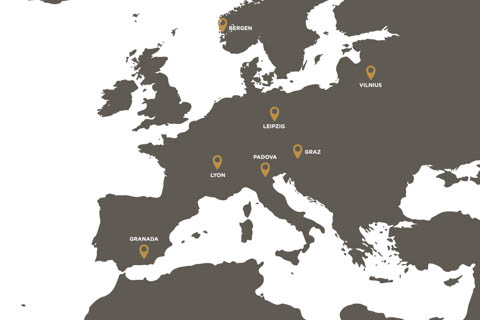German Studies (for beginners)
| Faculty Faculty of Philology |
|
|
|
Scope of studies and length 240 ECTS credits, 4 years |
|
|
Qualification awarded Bachelor in Humanities |
|
|
Application deadline* 1 May / 1 July |
|
|
Language English |
|
|
Tuition fee per year EU/EFTA students can apply for a state-funded places |
|
|
Start of studies
1 September
|
| City Vilnius |
The German Studies (for beginners) programme is open to candidates who do not have previous knowledge of German. They will study in two separate groups for the first 3 semesters. From the 4th semester on, the beginners will attend the same courses as the more advanced students.
The programme offers students the solid written and spoken communication skills required for workplace success in German (C1–C2), as well as a knowledge of the fundamentals of German linguistics, literature and the culture of the German-speaking countries. The curriculum includes a diverse range of course units that are designed to help students to develop their language skills, including the advanced writing, speaking and research skills needed to become successful. The students will also acquire a range of soft skills by cultivating their analytical and critical thinking, problem-solving and rhetorical abilities, while gaining a knowledge of culture and history, which will allow them to understand the complex modern world of today.
Why choose this programme?
|
What comes after?
|
|
"Vilnius University itself is one of the oldest universities in Eastern Europe. It also happened historically that, like the friendly and multinational Vilnius itself, Vilnius University is the center of education not only for Lithuania, but also for its closest neighbor countries. No matter how pretentious it may sound, for me this is a place of power for my people too (Belarusians). Liubou Tsishchanka 3rd-year student in German Philology |


